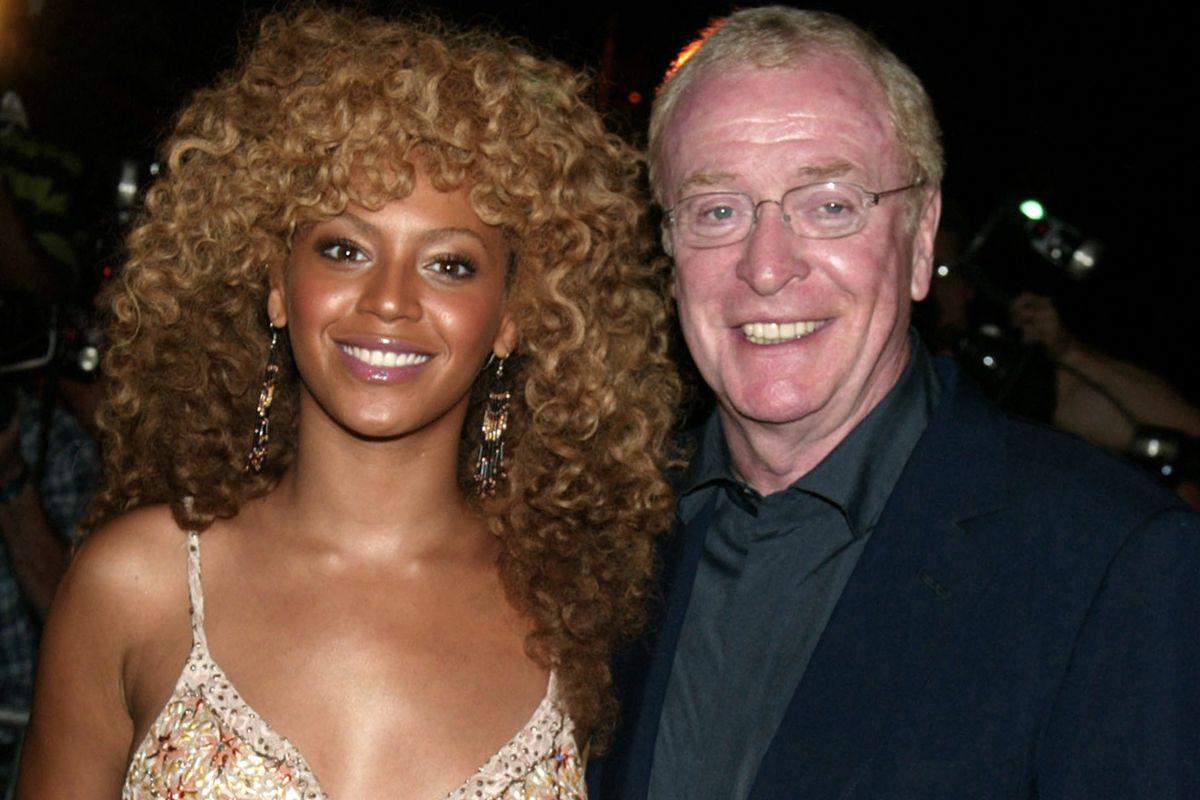An Oscar Wish
Thirty-five Grammy awards may be quite groovy, baby, yet it seems that nothing compares to the ultimate cinematic triumph of an Oscar. In Michael Caine’s new memoir, Don’t Look Back, You’ll Trip Over, he recalls a conversation he once had with Beyoncé on the set of 2002’s Austin Powers in Goldmember, when the future superstar confided that she very much longed to win an Academy Award. At the time, according to Michael Caine, she was only about nineteen years old and already struck him as a remarkably pleasant individual. He recognized from the outset just how determined she was and how immense her potential for success could be. From that initial impression, he sensed that this young performer was bound for stardom.
Caine goes on to describe how, on their first day filming together, his curiosity prompted him to ask Beyoncé what goal she was most set on achieving. Rather than hesitating or offering a boastful reply, she answered calmly and plainly that she intended to win an Academy Award for a film role. Even in delivering such an ambitious aspiration, Caine noticed no hint of arrogance in her voice—just straightforward honesty and a firm declaration of her hope for the future.
:max_bytes(150000):strip_icc()/michael-caine-the-great-escaper-premiere-2023-beyonce-austin-powers-goldmember-032125-45bfa310663a4d51b7dfb8119f509c3f.jpg)
The acclaimed actor also makes it clear that he absolutely believes she will accomplish that objective at some point down the road, especially given the unparalleled number of Grammys she already holds. To him, her personal drive, combined with her long-standing passion for music and film, seems certain to lead to an Oscar victory eventually. The singer’s massive success in the recording industry, according to Caine, merely foreshadows her inevitable achievements on the cinematic stage. He evidently has immense confidence in the scope and versatility of her talent.
A Step Toward Recognition
Beyoncé expressed her joy as she clinched her premier Oscar nomination with “Be Alive” on the King Richard soundtrack. The point at which Beyonce made it into the Oscar nomination signified her will to break through with a celebrated career in her music and visual arts ambitions. Earlier projects had already hinted at her potential for Oscar related accolades, such as Dreamgirls, where Jennifer Hudson won the Best Supporting Actress prize. Furthermore, Beyoncé’s role in the remake of the ‘2019’s Lion King, which was very unique and earned a nod for Best Visual Effects, underline her continuous participation in movies acknowledged by the Academy.
Though she did not take home an Oscar for “Be Alive,” her nomination validated the promise that Caine spotted on that film set years ago. As her discography and filmography continue to expand, her influence and honors grow in tandem. By maintaining her focus on creativity, excellence, and unrelenting dedication, it is entirely plausible that she will secure an Academy Award in the future—an outcome Michael Caine confidently predicted when she was still a teenager on the Austin Powers in Goldmember set.
:max_bytes(150000):strip_icc()/austin-powers-goldmember-michael-caine-beyonce-mike-myers-032125-aee08c77b72b4340b45140b107855808.jpg)
In his book, Michael Caine continues to applaud Beyoncé and their fellow costar, Mike Myers, for the energy and dedication they brought to Austin Powers in Goldmember. He recalls how Beyoncé stayed fully immersed in the comedic atmosphere alongside the entire cast, which included Michael York, Robert Wagner, and the late Verne Troyer, who Caine feels portrayed Mini-Me with exceptional brilliance. He highlights how Myers, whom he describes as a kind yet wildly inventive individual, made sure everyone had fun on set and even blasted loud rock’n’roll between scenes.. The experience left Caine feeling relaxed, inspired, and ready to embrace each humorous moment.
Joining the Franchise
Caine, well-known for his performance in The Ipcress File, also delves into how he came on board to play Austin Powers’ father, Nigel. He clarifies that the entire Austin Powers saga served as a cleverly outrageous spoof of ‘1960’s style, encompassing the wild fashion, the offbeat psychedelia, and all of the vibrant pop culture of that era. He notes that the humor revolved around exaggerating the distinctive trends of the decade in a way that was both playful and nostalgic. As Caine recalls, it was Mike Myers himself who extended the invitation for him to take on the part. The entire concept was impossible to resist, as it gave him a fresh opportunity to mix comedic acting with affectionate satire of an era he had personally witnessed and remembered.
He goes on to say how much he adored working on the movie, pointing out that it did not simply lampoon the 1960s but also affectionately revisited the spirit of that period. He admits there was great joy in poking fun at the decade’s eccentricities while simultaneously saluting its enduring impact on modern culture. The playful attitude on set, combined with clever writing, inspired him to embrace the over-the-top nature of Goldmember. He fondly remembers filming a particular scene where he had to instruct Dr. Evil’s henchmen on precisely how they should fight him, repeatedly calling out “Judo chop! Judo chop!” in a mock-serious tone. Even though the setting was silly and comical, the moment exemplified how well the production balanced laugh-out-loud hijinks with a deep appreciation for the colorful era it celebrated.



